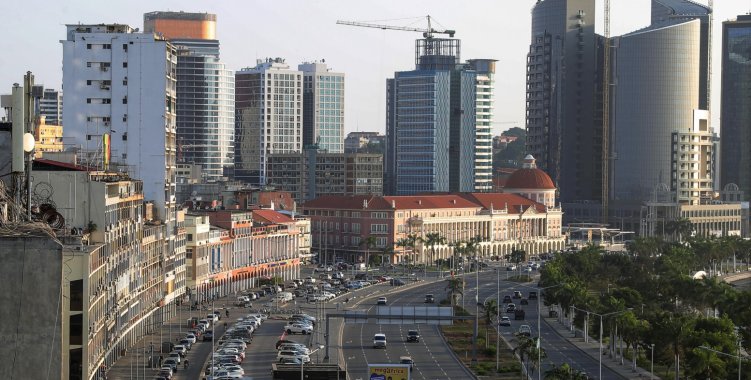In statements to the Lusa news agency, economist Alves da Rocha considered that progress had been made in the post-dos Santos period in the economic and infrastructure fields, acknowledging that, in terms of economic diversification, "the process is slow and has to meet a series of conditions", including cultural and institutional ones, for its implementation and consolidation.
Conversely, economist Carlos Rosado de Carvalho concluded that, from an economic point of view, "there is no before and after Eduardo dos Santos, it is the same thing", because "the party that governs is the MPLA [Popular Movement for the Liberation of Angola]".
"After all these years, what do we see? It is the same thing, there is no difference from an economic point of view, there is none. I think that in the oil sector there is a change in terms of legislation", he said.
The two economists participated this Monday in Luanda in the launch of the anthology "Angola, pós-dos Santos", a collection of articles produced by Angolan and Norwegian researchers and international academics who conduct research on Angola, sponsored by the Norwegian Embassy in Angola.
Commenting on Carlos Rosado de Carvalho's observations, researcher Alves da Rocha pointed out that "the era of President João Lourenço [who succeeded Eduardo dos Santos] is one of peace", a context in which "it is possible to do different things, more so than in a time of war".
"President José Eduardo dos Santos, in his 38 years of government or presidency, only had peace after 2002 and it must be acknowledged that in this regard development plans and programs were drawn up", he stressed.
Alves da Rocha agrees, however, with Carlos Rosado de Carvalho on the political point of view, since "the governing party is the same, the philosophy is the same".
"Our problem is not the person in charge, our problem is the system, it is the party that governs Angola (...). There were some changes until the middle of [João Lourenço's] first term, but from the middle of the first term there was a tremendous setback and we went back to exactly the same things that existed before", he emphasized.
In turn, Angolan researcher Francisco Paulo, who addressed "Reducing Dependence on Oil as a Driver of Democracy", stressed that Angolan oil revenues during João Lourenço's government decreased by around eight billion dollars.
Francisco Paulo highlighted that this deficit led the government to launch a tax reform program, collecting taxes from the population, which is also beginning to increase the level of demands, demonstrating greater democratic awareness.
"It is important that the AGT [General Tax Administration] does its work with complete impartiality and that the revenues are used to provide quality public services and relieve the burden on companies", he emphasized.
According to the researcher, union demands have increased, with several strikes occurring in various sectors, considering one of the main changes between the two periods to be the scarcity of oil revenues, which require a focus on non-oil taxes.
For Francisco Paulo, there have been changes in the last eight years, but "the big problem is that the population's standard of living is worse", especially among young people aged 15 to 24, the majority of whom have no education or jobs.
José Eduardo dos Santos, former president of the Republic (now deceased), governed Angola between 1979 and 2017, having been succeeded by the current head of state, João Lourenço, who is serving his second term, which ends in 2027.







